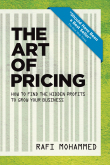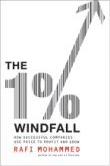Customers are like elephants…
…they always remember a discount. Rob Walker wrote an interesting New York Times article (Flavor Enhancement, 6/21/09) on the Hyatt Hotel Chain’s new “Random Acts of Generosity” relationship marketing program. After months of customer research, Hyatt has decided to randomly pick up the tab for free room service, bar drinks, or a night’s stay. The goal of this program is to make the customers (who benefit from this kindness) grateful and hope that this emotion will promote future purchases.
A classic academic article on gratitude involved students lining up to participate in an experiment. Some people in line were unexpectedly given a free soda by an assistant posing as a fellow subject waiting to participate in the experiment. The same assistant later asked the subjects to buy raffle tickets. This was the actual experiment. The study found that those who received the free and unexpected soda bought twice as many tickets compared to those who didn’t get a soda. The bottom line of this and similar experiments is that consumers feel pleasure in reciprocating out of gratitude and guilty when they don’t. Marketing professors advocate that businesses exploit this research finding.
Makes sense, right? I appreciate free as much as my fellow shoppers. And yes, this gratitude generally results in more purchases. The drawback of these academic studies (and Hyatt’s program) is that they do not investigate the role of gratitude (generated by discounts) in a long term relationship. Once consumers receive a discount (or a free item), human nature is to expect these benefits in the future. Thus, if a discount makes a customer grateful today, they’ll need a lower price tomorrow to remain happy. This is a principle of pricing and especially relevant in today’s poor economy – discounts create future expectations and can devalue a brand.
The key distinction that marketers should make is to evaluate the benefits of “free” in short-term versus long-term customer relationships. In the short-term, an unexpected discount or free add-on can promote higher purchases. Sales floors (such as for autos) should consider offering free sodas or cappuccinos to engender purchase generating gratitude.
Free isn’t a good strategy for long term relationships because of the expectations that it creates. If these expectations are not met, free can upset customers and actually impede future purchases. There are many other methods for companies to create goodwill and gratitude aside from discounts. Extraordinary service and a cheerful greeting can be as effective a 10% off coupon or free amenity.
What do you think? Are the benefits of free different for short-term versus long-term customer relationships? Do you think that Hyatt’s program will be successful in promoting higher purchases?





Great point. They never forget. You made me think of a similar phenomenon that I ran into when perusing the aisles of a 99c ONLY! store. The product mix in this store was fairly broad for having no individual item priced higher than 99c. For example, they offer products such as AA battery 2-packs which seem to be a true, everyday kind of 99c item... and there are other products such as drink mixes which sell in supermarkets for $2.19. Why are they available at less than half the usual price here? I looked and the product's Best if Used By date was approaching within a month. I would tend to use such a product within a month of purchase, so the difference in value between the 99c version and the one available for $2.19 with a presumably longer shelf life was slim to none in this situation. The moral of my story and how it relates to your thoughts... is that you're point is right on the money (no pun). The next time I see that drink mix on the supermarket shelf priced at $2.19 I'll be thinking, "Hmmm, that's a 99c item and they're charging $2.19 for it here." It will now appear to be priced higher than I am willing to pay, because, as you said, I'll never forget seeing it priced at 99c. Wholesalers in the US facing expiring product don't have a lot of good options beyond liquidation to stores such as the 99c ONLY! types (other than perhaps shipping the product to a country outside the reach of our FDA for sale there.... which looks like a more attractive option from a pricing strategy standpoint). Wholesalers and manufacturers should consider this because liquidation pricing when there is no significant drop in perceived value (in exchange for the discounted price) will depress the retail pricing in the long run if the distribution channels are too close to one another. They should find a way to avoid conflict in neighboring channels... or suffer the long-term consequences. LT.